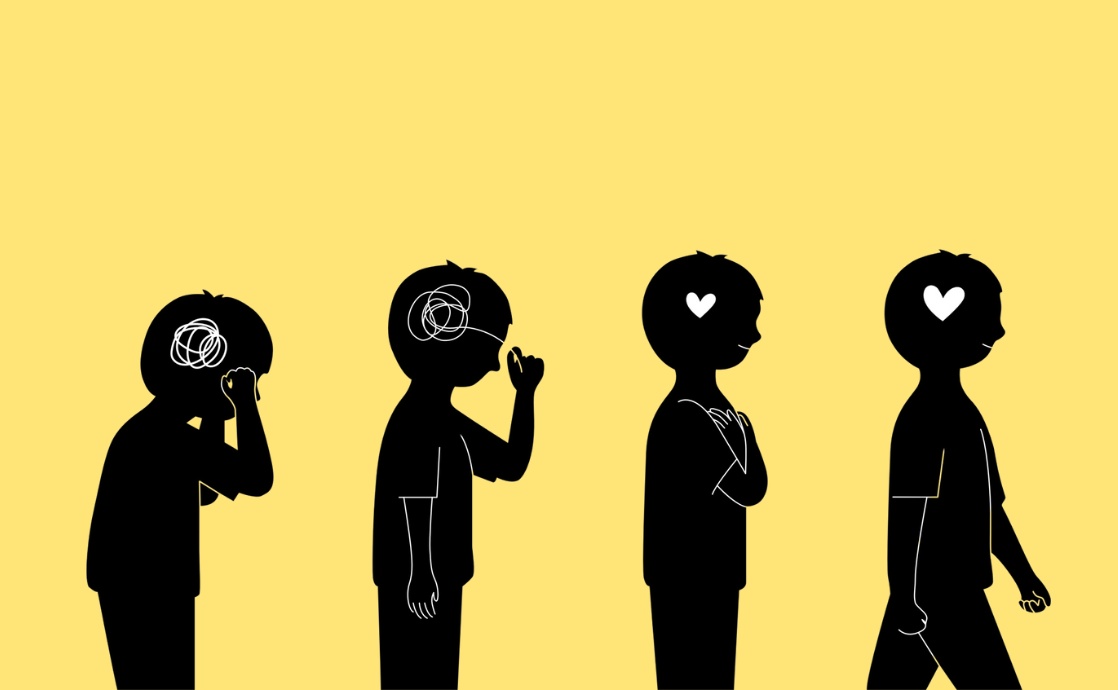In the intricate tapestry of human experiences, the masculine archetype has often been adorned with the expectation of invulnerability, valor, and assertiveness. This potent construct, colloquially referred to as the “macho mask,” symbolizes a societal blueprint that prescribes strength in disposition and emotional stoicism, while suppressing attributes viewed as inherently nurturing or sensitive. However, the Bahá’í teachings offer a transformative perspective, urging for the dismantling of these archaic paradigms. The call to cultivate a new generation of boys as peacemakers invites a profound contemplation of personal, familial, and communal responsibilities.
At the essence of these teachings lies a profound reverence for the interconnectedness of humanity. The Bahá’í understanding of masculinity transcends superficial attributes; it is intrinsically linked to our commitment to justice, compassion, and cooperation. Thus, raising boys to embody the virtues of peacemaking is both a personal journey and a societal imperative. The following guidelines elucidate actionable steps toward nurturing boys as thoughtful, empathetic, and proactive advocates for peace.
1. Redefining Strength: From Conquest to Compassion
To advocate for peacemaking, it is crucial to redefine what strength truly means. Instead of associating power with dominance or aggression, teach boys that genuine strength encompasses compassion and empathy. Encourage them to engage in dialogue rather than discord, to listen earnestly, and to approach conflicts with the aim of understanding rather than winning. This paradigm shift can be reinforced through literature, media, and real-life role models who exemplify these ideals.
2. Encouraging Emotional Literacy
Emotional intelligence is an invaluable asset. Boys must be equipped with the vocabulary and understanding to articulate their feelings. Facilitate discussions around emotions, encouraging expressions of joy, sorrow, frustration, and vulnerability. Activities such as journaling, art, or group discussions can provide safe spaces for boys to explore and communicate their emotions. By normalizing vulnerability through emotional literacy, the macho mask begins to dissolve, making way for authentic self-expression.
3. Fostering Acts of Kindness and Service
Engaging with the greater community instills a sense of responsibility and belonging. Facilitate opportunities for boys to participate in acts of kindness or community service. Organizing neighborhood clean-ups, assisting the elderly, or volunteering at local shelters diminishes the focus on individualistic pursuits and instills a collective ethos. These experiences are fertile grounds for developing an intrinsic understanding of empathy and collaboration.
4. Promoting Collaborative Play
Play is a natural teacher. Encourage boys to engage in collaborative rather than competitive play. Activities that require teamwork foster communication, negotiation, and conflict resolution skills. Cooperative games such as building projects or group sports promote inclusion over exclusion and reinforce the notion that success is not a zero-sum game. This environment helps to dismantle rivalrous tendencies that often accompany traditional masculinity.
5. Cultivating Critical Thinking and Reflection
A critical thinker is more likely to challenge societal norms. Encourage boys to question the narratives surrounding masculinity and the macho mask. Facilitate discussions that dissect media portrayals of manhood and analyze the implications of violence and aggression. Encourage reflective practices, such as engaging in dialogues about decision-making processes. By developing their analytical abilities, boys can become conscious of their ideas and actions, influencing their interactions with others.
6. Mentorship and Role Modeling
One of the most effective ways to cultivate peacemakers is through mentorship. Boys benefit from the guidance of male role models who resonate with the values of peace and kindness. Engaging them with mentorship programs or community leaders who exemplify integrity, empathy, and social responsibility can inspire transformative change. Witnessing these values in action helps instill similar principles in boys, providing them with a compelling alternative to the macho narrative.
7. Incorporating Diverse Perspectives
Embrace diversity in language, culture, and experience. Help boys understand that there is no singular definition of masculinity. Exposure to diverse perspectives, through literature, cultural exchanges, or discussions with peers from various backgrounds, enriches their worldview and fosters respect for differences. This openness is a stepping stone toward nurturing a global citizen—one who recognizes their shared humanity and actively seeks peaceful resolutions to conflicts.
8. Empowering Open Dialogue in Families
Fostering an environment of open dialogue within the family unit is pivotal. Create spaces where boys feel safe discussing their thoughts, fears, and uncertainties. Regular family meetings or informal check-ins can serve as platforms for this dialogue. Listen attentively and validate their feelings, reinforcing the message that it is safe to be vulnerable. When open communication is a family norm, boys learn to express themselves clearly and authentically.
9. Instilling a Sense of Global Responsibility
By instilling a sense of global responsibility, boys can shift their focus beyond personal and familial spheres to larger societal concerns. Educate them on current global challenges, inspiring them to become advocates for positive change. Engaging in dialogues about human rights, social justice, and environmental stewardship can encourage a profound sense of agency, helping them realize their potential as influential peacemakers.
10. Celebrating Non-Traditional Masculinity
Finally, it is essential to celebrate non-traditional expressions of masculinity. Emphasize that traits such as nurturing, sensitivity, and collaboration are not antithetical to being a boy, but rather integral components of a well-rounded individual. Promote narratives and examples that celebrate the richness of human experience outside the confines of the macho mask. This celebration helps broaden the understanding of what it means to be male in today’s world, aligning with the Bahá’í principle of unity in diversity.
In conclusion, the journey towards raising boys as peacemakers is arduous yet profoundly rewarding. The Bahá’í teachings illuminate a path where boys can shed their macho masks, embracing empathy, compassion, and resilience. Through consistent engagement and thoughtful guidance, we cultivate young men who will foster peace in their families, communities, and the world at large. This transition not only benefits the individual but enriches humanity as a whole, reinforcing our interconnectedness and shared aspirations for a harmonious future.
